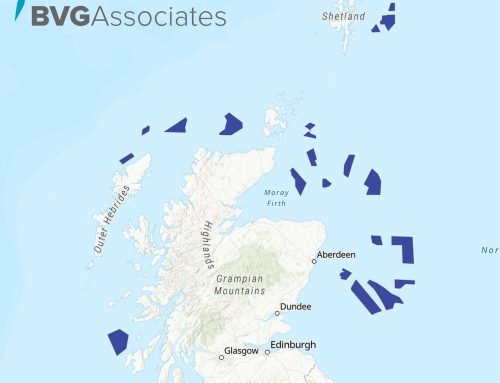The UK government recently published a consultation on changes to the Clean Industry Bonus (CIB) scheme. The scheme was introduced for Contract for Difference (CfD) Allocation Round (AR) 7 and provides a financial incentive for developers to procure from UK companies in disadvantaged areas or from those with ‘Science-Based’ environmental initiatives.
The government is in a slightly tricky position with this. It has to ensure the consultation does not delay AR8; at the same time, it can’t really be sure of the ‘early success’ of the CIP scheme for AR7.
Here are my thoughts on some of the proposed changes.
Minimum levels of workforce protection
My first reaction is why pick on offshore wind? Does the government think the industry has a poor track record in this respect? Does the government think industry would be resistant to the introduction of a fair work charter? My view is that unless the government thinks that offshore wind has a problem it should address this through generic workforce legislation.
Minimum investment in skills
The old supply chain plans included a skills criterion. It is probably fair to say that it delivered very little in terms of additional developer commitment. My initial reaction is that inclusion in the CIB framework would not be any more effective. But there is an interesting proposal, which I like. This is to incentivise payments into a central skill development fund. This is a far better option than trying to get projects to deliver skills initiatives. Typically, skills development is done at corporate level and it is really hard to achieve much within a project delivery timetable and a collaborative fund could achieve much more.
Expanding to onshore wind
To be successful, the CIB framework needs to change behaviour. The CIBs, fundamentally, are about creating an incentive for UK content. The idea can work for offshore wind because here is a wider range of products and services procured and there are, or are potential, UK options. The CIB can, in theory, make the UK option more attractive. DESNZ focuses (rightly) on component production in its consultation but it’s far from certain that CIBs can make a difference, perhaps with the exceptions Vestas repurposed Isle of Wight blade facility and Hutchinson’s tower production capability. I don’t see UK nacelle production as likely and it’s hard to see the CIBs as providing enough incentive for electrical component fabrication or gearboxes. If DESNZ goes ahead with onshore CIBs, it must have realistic expectations on what it can achieve.
The Clean Industry Bonus evolved from non-price factors in the CfD allocation, to Sustainable Industry Awards that sought to encourage a wide range of activities by developers, and finally to CIBs that had simple and clear objectives (basically to incentivise UK content). A big worry is that by widening CIBs’ fairly simple objective, the government dilutes that incentive and is less likely to achieve its aims.






